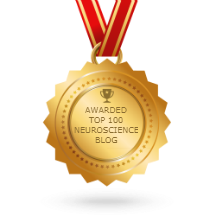-
5
Jul
BrainML is a developing initiative to provide a standard XML metaformat for exchanging neuroscience data. It focuses on layered definitions built over a common core in order to support community-driven extension.
One such extension is provided by the new NIH-supported neuroinformatics initiative of the Society for Neuroscience, which supports the development of expert-derived terminology sets for several areas of neuroscience.

The BrainML project is funded by the Human Brain Project-Informatics initiative via MH/NS57153 from the NIMH and NINDS and is directed by:
Daniel Gardner
Weill Medical College of Cornell University
BrainML will serve as:
* an open and non-formal functional ontology for neuroscience
* a data description language for interoperability among neuroscience resources
* an interface for exchange of data, metadata, queries, tools, and models
* a substrate for describing the contents of journal articles
* a link to other XML-based description languages for scientific interchange
BrainML is being designed around several key modules and technologies:
* a design and semantics determined by the standards and practices of neuroscience
* our Quintessence type hierarchies: for data, entities, references, models, and methods
* BrainMetaL, a metalanguage embodying abstract semantics for scientific data
* attribute-specific datatype slots, attributes, and hierarchies, to give is-a and has-a context and selectable specificity
* XML, for universality and available tools
* XML namespaces, to enable interconvertible dialects
* XML Schema, to provide layered extensibility
Already, the first data repository of downloadable neurophysiological data, conforming to a BrainML data model and protocols, is online. This site was created by the Laboratory of Neuroinformatics at Weill Medical College of Cornell University to serve as a repository for BrainML data.
You may follow potential scenarios involving BrainML in support of interchange and interoperability within or between neuroinformatics resource here, or just reach BrainML web site here.
- Published by Dimitrios A. Adamos in: Software
- RSS feed subscription!

 Neurobot via RSS
Neurobot via RSS
